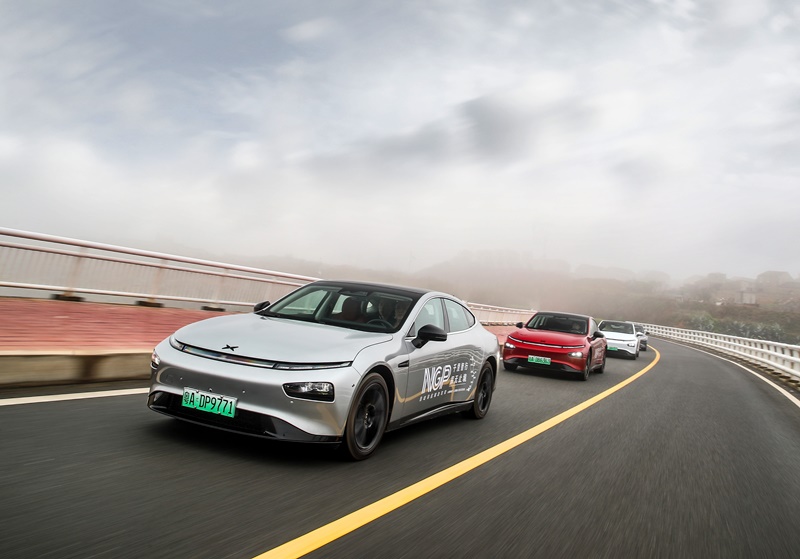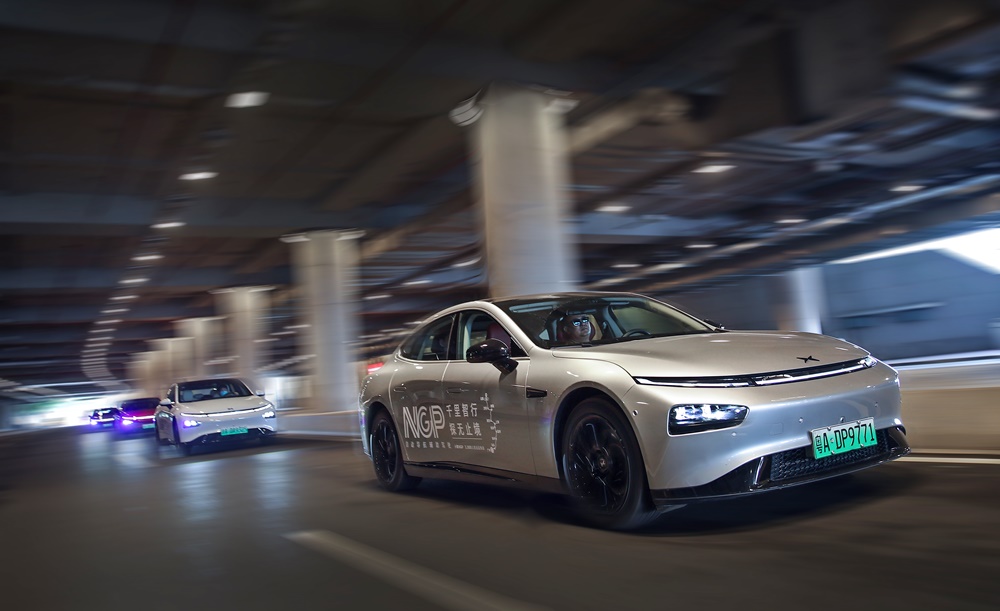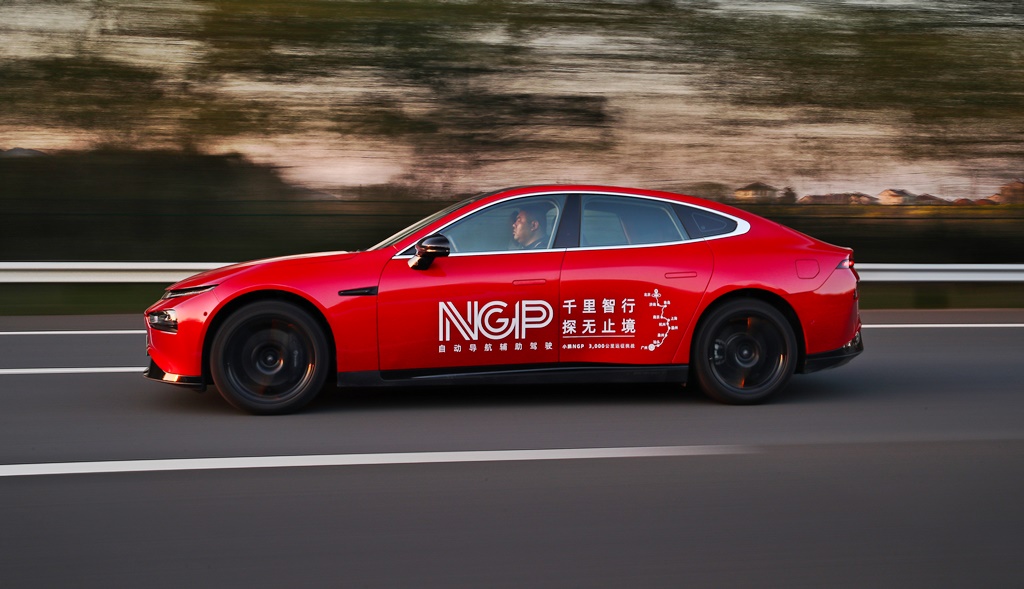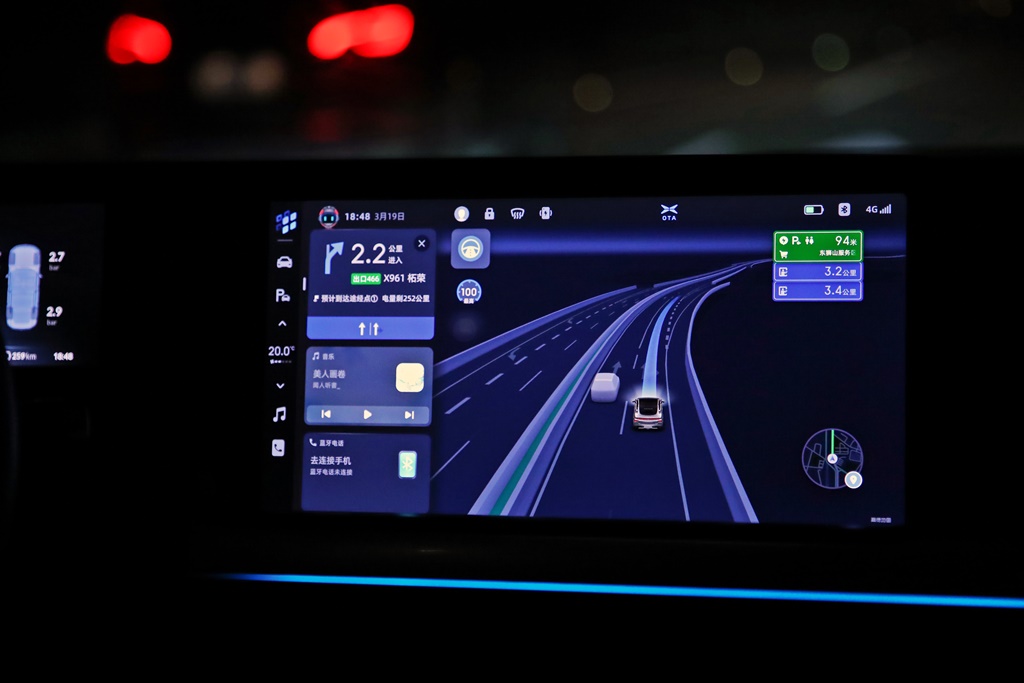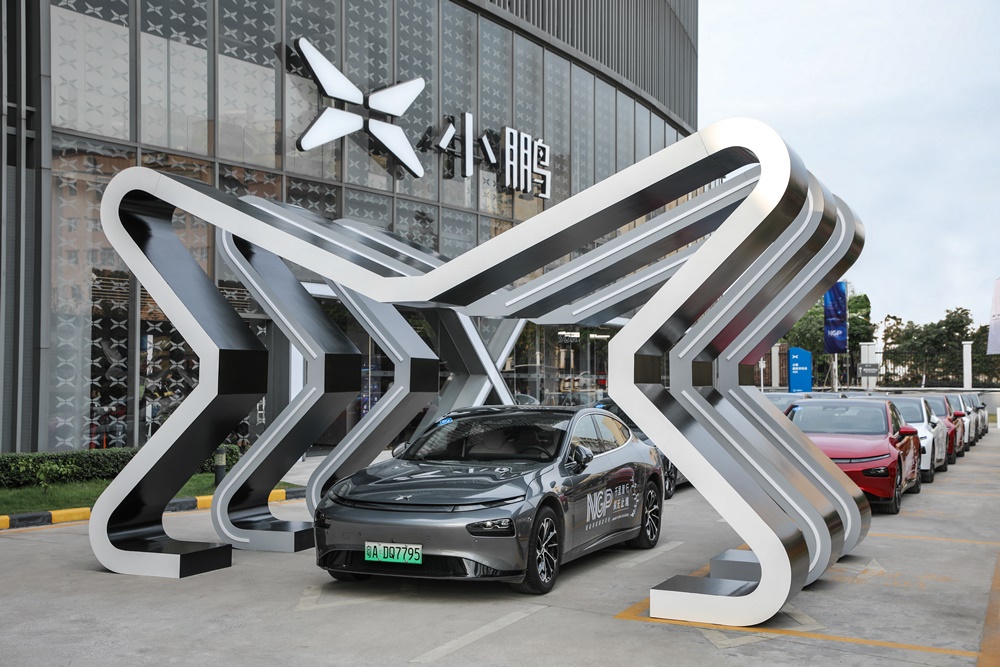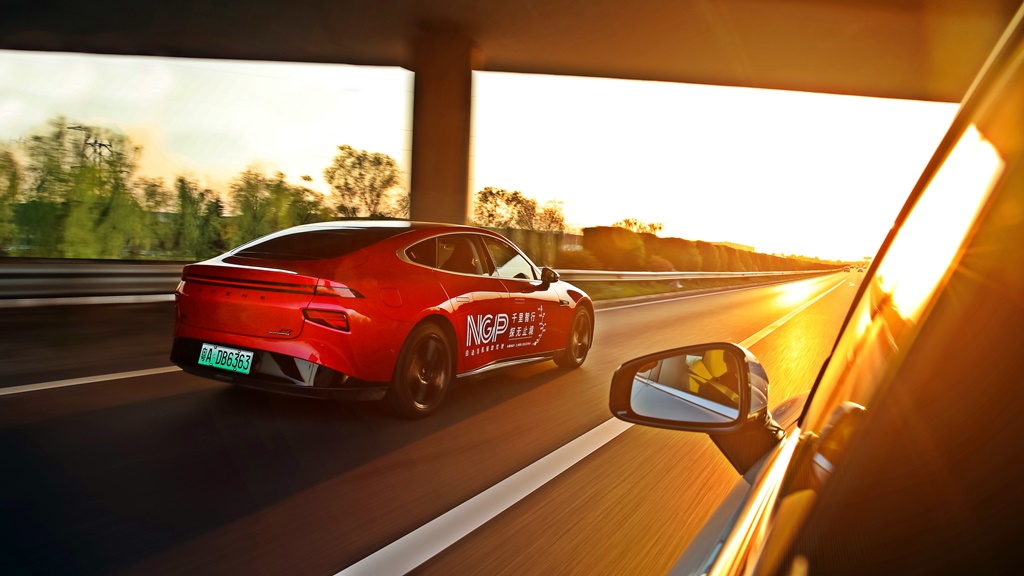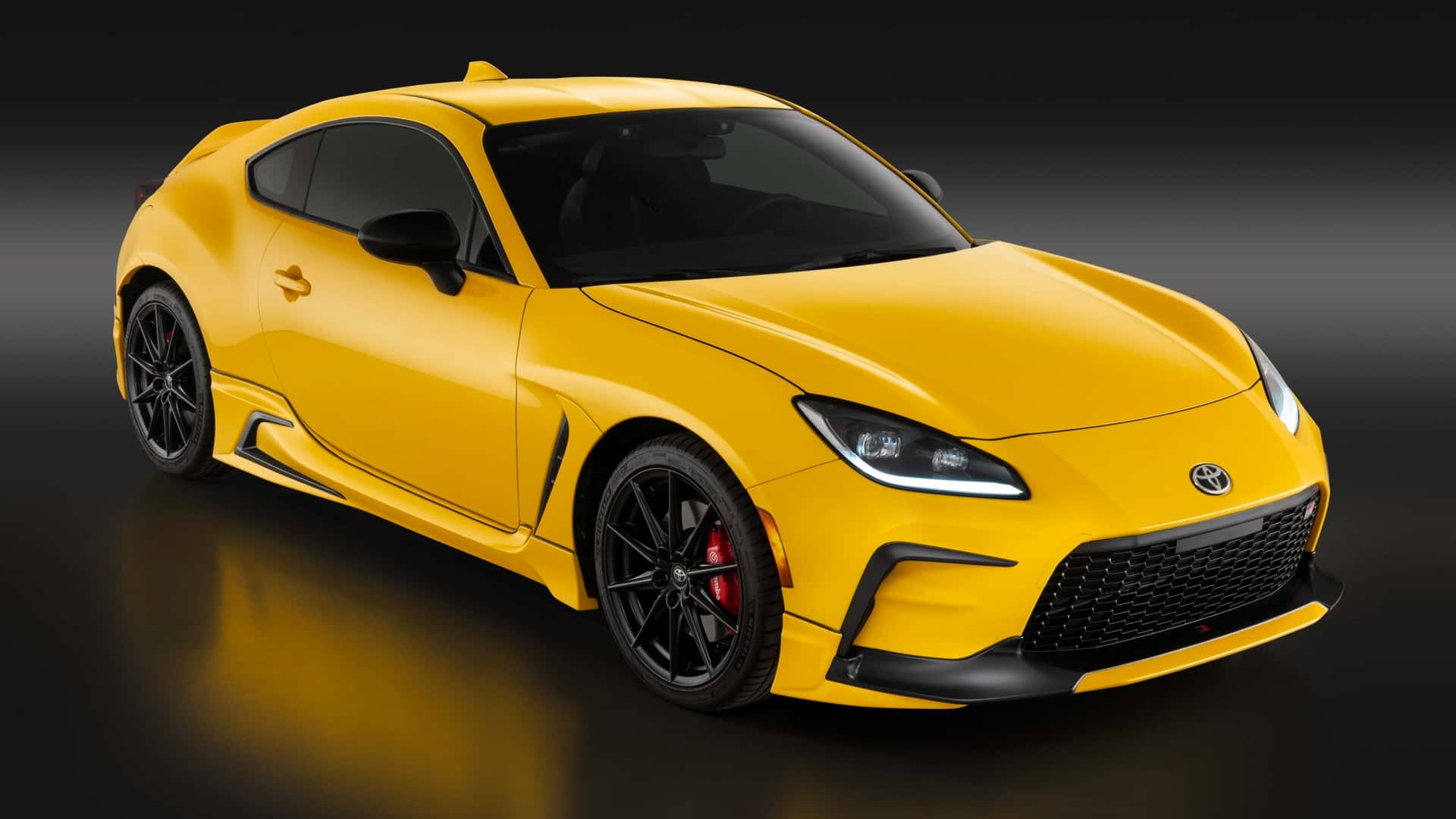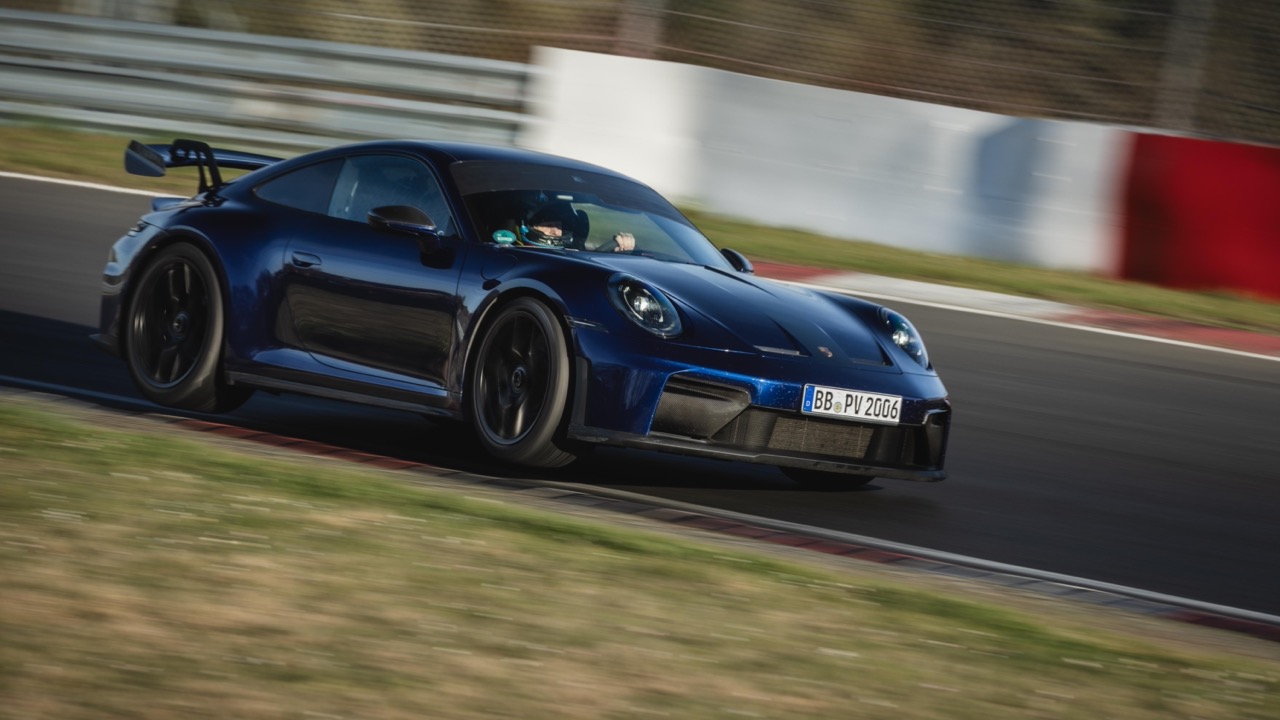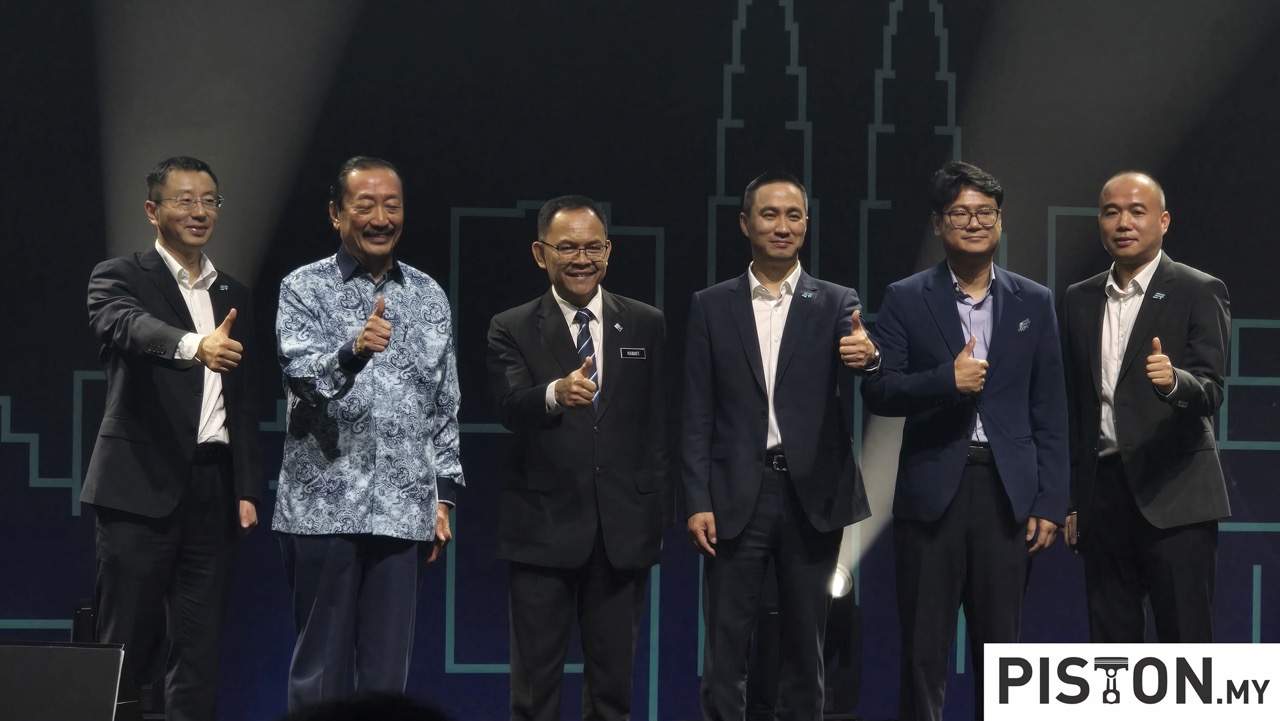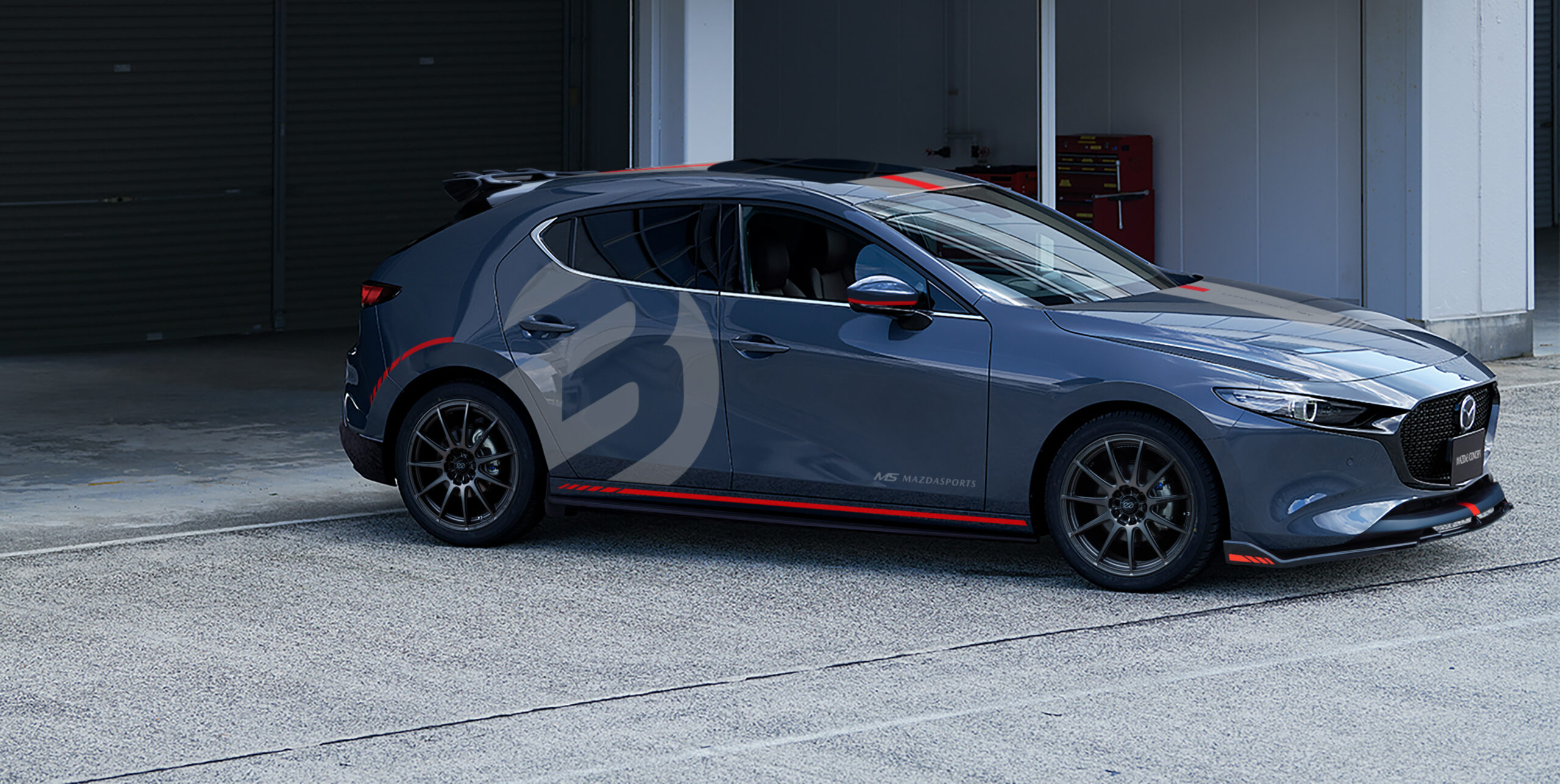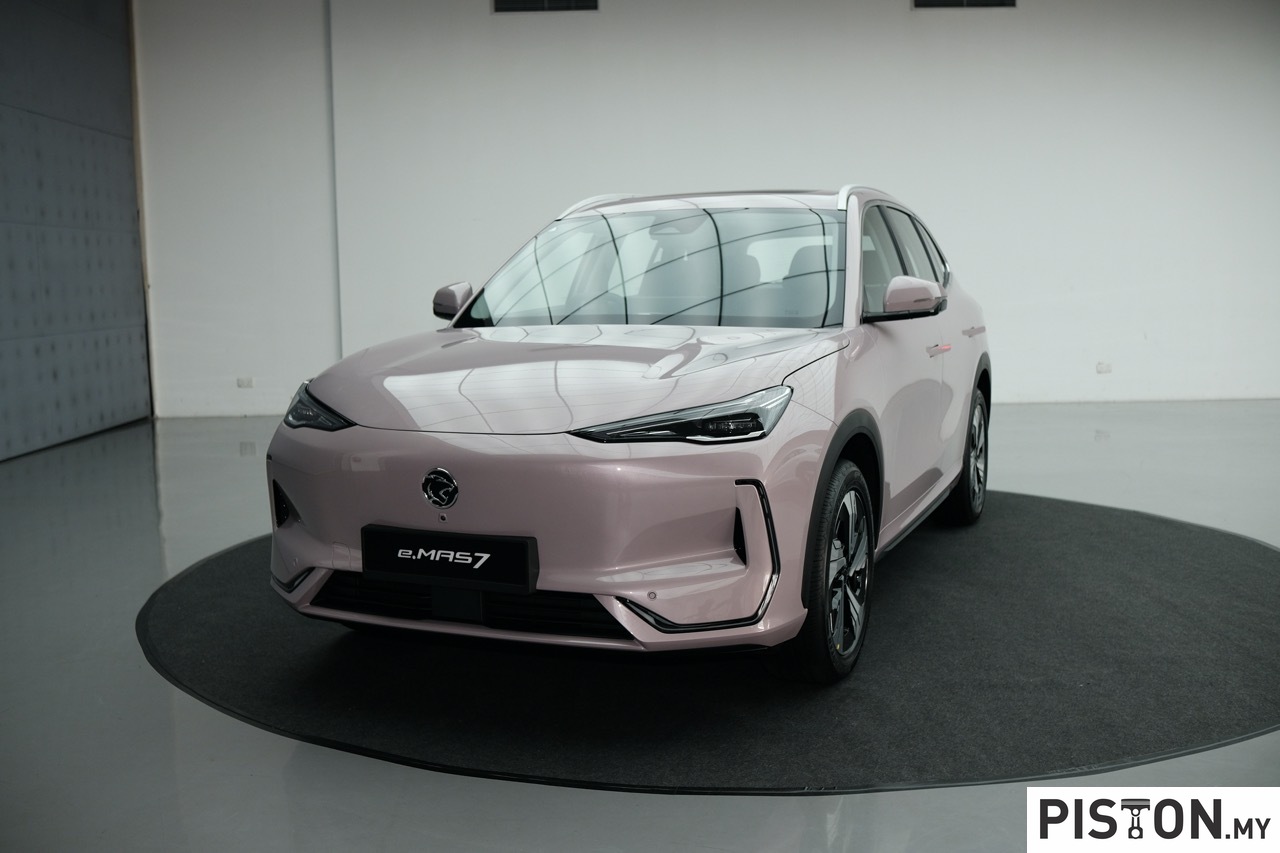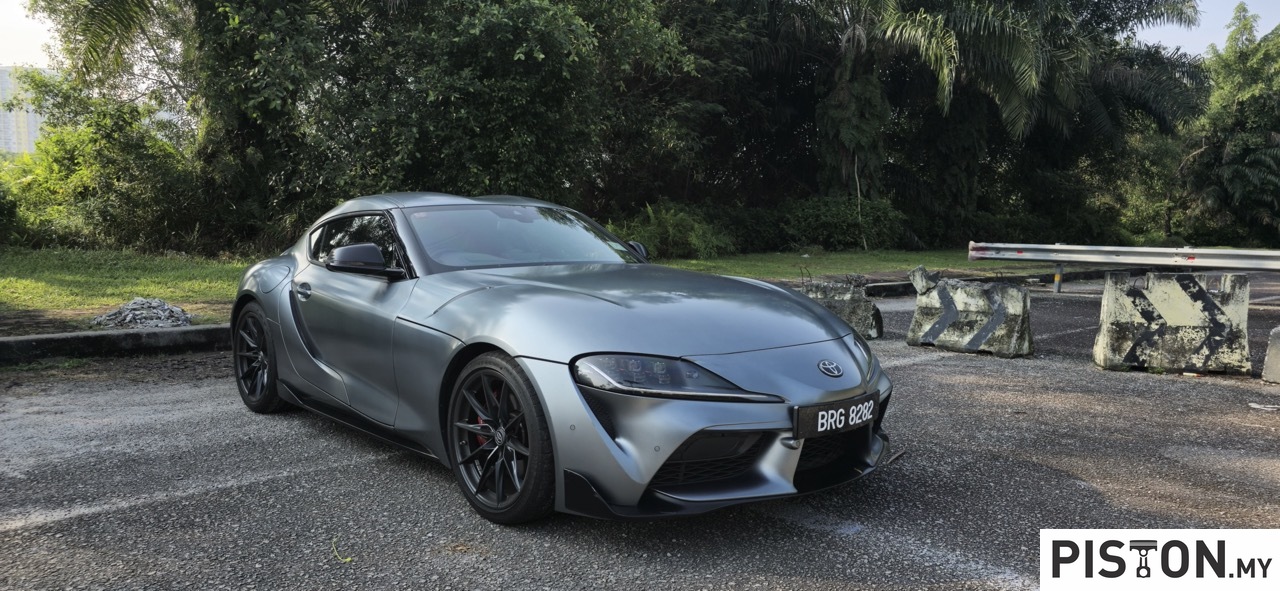XPeng Inc., a Chinese manufacturer of electric vehicles, has set a record for China’s longest real highway autonomous driving by a mass-produced vehicle. Its fleet of P7 sedans travelled over 3,600 kms from Guangzhou to Beijing, of which 2,930 kms of highway driving were done under the control of the NGP (Navigation Guided Pilot) that enabled autonomous motoring.
0.71 human driver interventions
During the time when NGP was active, the human driver interventions per 100 kms was an average of 0.71. The average success rate for lane changing and overtaking was 94.41% during the 8-day expedition. The average highway ramp entering and exiting success rate was 92.76% and average tunnel pass-through success rate was 94.95% during the same period.
The drive was done in the public eye with 228 auto journalists, EV enthusiasts and industry experts participating along the way. The fleet numbered 12 to 15 cars and passed through 10 cities in 6 provinces along China’s eastern costal corridor. The route was chosen to cover some of the most complex yet representative road conditions and driving scenarios in China so as to fully test the NGP’s responses and effectiveness.
XPeng reported that the NGP delivered stable performance in rainstorm conditions, passing through tunnels, and on highways in mountain areas, demonstrating its high robustness and reliability even in difficult driving scenarios.
The NGP highway solution provides navigation assisted autonomous driving from point A to B, based on the navigation route set by the driver, and is available on highways covered by high-precision maps in China. Its full-scenario high-definition positioning capability solves HD-map positioning challenges for China’s highly complex road conditions, including areas with no GPS signals.
Most powerful autonomous system
The system is enabled by the P7’s strong underlying autonomous driving architecture, claimed to be the most powerful system in production vehicles in China. It has 14 cameras, 5 millimetre-wave radars, 12 ultrasonic sensors, centimetre-level high-definition positioning, decimetre-level high-definition mapping, NVIDIA Xavier system-on-the-chip computing platform, and a Bosch iBooster brake system. The P7 is also China’s only mass production car with a 360-degree dual camera and radar fusion perception system for added safety.
“The expedition has fully challenged the robustness and reliability of the NGP function. The results demonstrate that it is not only the strongest, but also the easiest to use autonomous driving function for production vehicles available in the market,” said He Xiaopeng, Chairman & CEO of XPeng Inc. “We strive to become the world’s top autonomous driving hardware and software provider, and our strategy and R&D capabilities place us well in achieving this goal.”
About XPeng Inc.
XPeng Inc. was founded in 2015 with the aim of designing, developing, manufacturing and marketing smart EVs in China. While it is currently selling its two models only in China, it has established a presence in America and has future plans to enter that market. It has a permit to conduct autonomous vehicle testing in California and has displayed a model at the 2018 Consumer Electronics Show (CES) in Las Vegas. The company’s stock is also publicly traded on the New York Stock Exchange.




